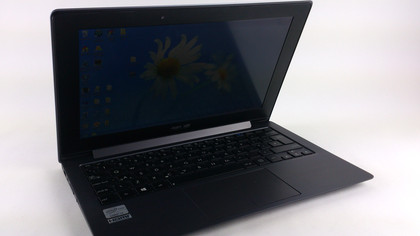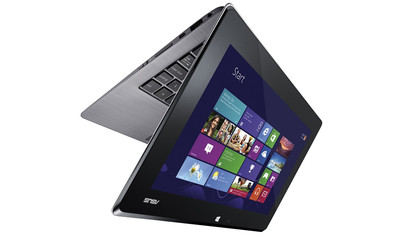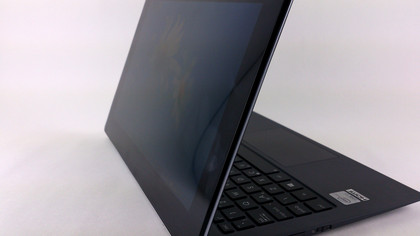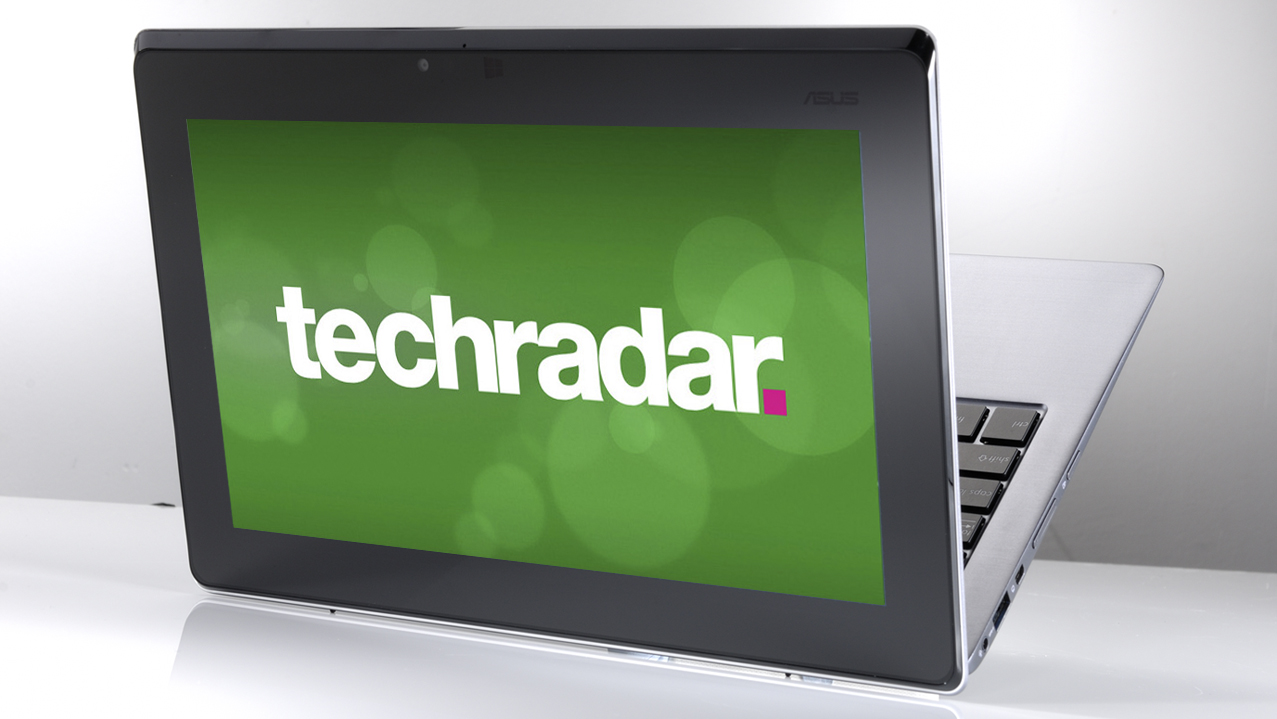Why you can trust TechRadar
We've grown used to typing on shallow-travel keyboards, inspecting chassis for signs of flex and squeezing out as much battery power as possible. Happily, the Asus Taichi holds up well when it comes to general day-to-day performance.
That's not to say there aren't drawbacks - the least of which is that we shudder to think what would happen if you dropped it. For all its style and sex appeal, we can't help but feel the Asus Taichi is a little on the fragile side.
Similarly, its small size limits its connectivity. Along with the aforementioned USB ports you get a Micro VGA, Micro HDMI and an Ethernet port. There's also the latest wireless connectivity in the form of Wi-Fi N and Bluetooth v4.0.

The chiclet keyboard features a subtle white backlight, and the touchpad is reassuringly large. The integrated click buttons aren't a problem here as they have been on other laptops, and you'll quickly find your orientation after a few minutes of using the Asus Taichi.
Multitasking is handled well, partly due to Windows 8's snap view feature that enables you to resize running apps and snap them to the left and right of the screen for easy navigation.
A feature of the Asus Taichi that deserves a particular mention is the audio performance. Thanks to built-in speakers from audio maestros Bang & Olufsen, the Asus Taichi punches well above its weight.

You won't be able to use this laptop for a party without amplification, but there's enough here for more than one person to sit down for a movie and hear what's going on.
Sign up for breaking news, reviews, opinion, top tech deals, and more.
Asus originally brought in the Danish company for work on the original Asus Zenbook UX31, and we're glad to see the partnership is still going strong.
Benchmarks
Cinebench 10: 10,768
3D Mark '06: 4,007
Battery Eater '05: 197 minutes
We were a little disappointed to find the Asus Taichi only managed 197 minutes when we subjected it to our battery test. We'd expect it to easily clear the 200-minute mark, so it really should have performed better.
In fairness, we'd expect this device to last longer with more conservative usage and when being used as a tablet. By way of a comparison, the second generation Asus Zenbook UX32A managed only 208 minutes when we subjected it to the same test.

Overall we were impressed with the performance of the Asus Taichi, and the Cinebench score of 10,768 reflects this.
We did occasionally see some lag when both screens were running independently with several programs on the go, but this was an extreme example. If you're looking for power, portability and no small measure of versatility, you'll find it here.
